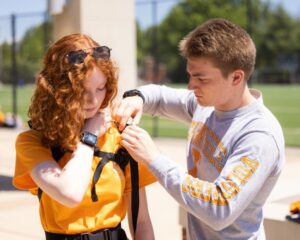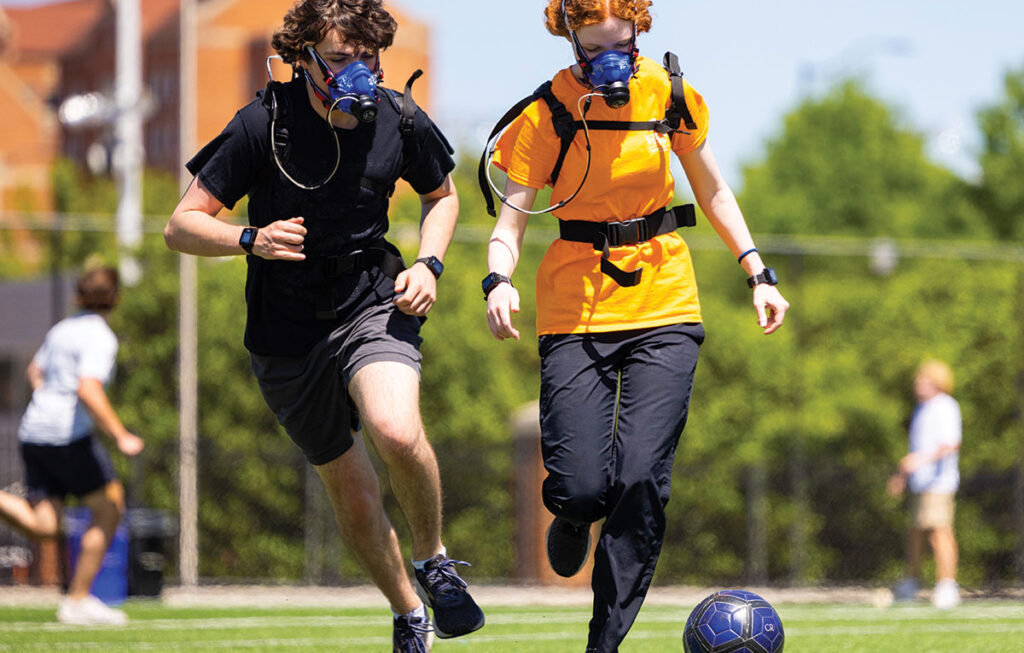Scott Crouter’s Research Could Change the Way We Measure Physical Activity
by Nicole Fultz
Wearable Technology and AI Revolutionize Physical Activity Assessment

Scott Crouter, a distinguished professor in the Department of Kinesiology, Recreation, and Sport Studies (KRSS) at the University of Tennessee, Knoxville, leads a groundbreaking research project. The National Institutes of Health (NIH) funds this project, which aims to revolutionize physical activity assessment using wearable sensors and artificial intelligence (AI).
The goal is to improve how we are able to predict both activity type and energy expenditure at the individual level.
Accelerometers and Gyroscopes Capture More Comprehensive Movement Data
Physical activity plays a crucial role in maintaining health and well-being. However, accurately measuring it has always been a challenge. Most wearable devices, such as Fitbits and Apple Watches, use accelerometer sensors that capture linear movement. These devices estimate energy expenditure and activity type based on average values, often failing to capture the complexity and variability of human movement.
Crouter’s research project tackles this issue head-on. His team uses a combination of accelerometer and gyroscope sensors to capture both linear and turning motion. This approach provides a more comprehensive picture of the intensity and pattern of movement.
When the gyroscope was added in, we got over 90 percent accuracy. So it’s a huge improvement at the individual level, which is what we’re focusing on.
But capturing more data is just part of the solution. The team also uses machine learning algorithms, a branch of AI, to analyze this sensor data. These algorithms can identify specific activities that people are doing at any given moment, providing a more accurate assessment of physical activity.
Developing New Models with High Accuracy And Precision
The project involves three distinct studies with adult participants from various locations. The first study takes place at UT, where participants perform a list of 18 activities ranging from sedentary behaviors like sitting and computer work to vigorous activities like mowing the grass to moving dirt with a wheelbarrow.
The second study was at the University of Colorado Anschutz Medical Campus. Here, participants stay in a room calorimeter – a device that measures energy expenditure by analyzing their breathing.
The third study occurs in free-living environments. Participants wear a portable system that captures their breathing and movement as they go about their daily lives.
The ultimate goal of Crouter’s project is to develop new models that can predict both energy expenditure and activity type at the individual level with high accuracy and precision. This could pave the way for more personalized interventions for physical activity promotion and disease prevention.
Crouter emphasizes that this project is not just his own – it’s a team effort involving collaboration with other investigators from different disciplines and institutions, as well as students involved in data collection and analysis.
Crouter hopes his research will significantly contribute to the advancement of precision medicine and wearable technology.
This research project exemplifies how KRSS faculty are conducting innovative research that addresses important health issues and enhances human performance.
